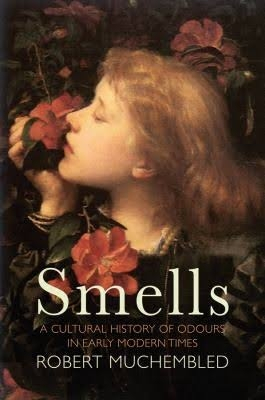Smells
A Cultural History of Odours in Early Modern Times
Smells is part scholarly treatise, part fascinating popular history, dashed through with a soupçon of wit. Historian Robert Muchembled’s abundant research led him to scour estate and shop inventories, manuscripts, illustrations, and literature from the sixteenth through the nineteenth centuries to uncover the shifting role that body odors and perfumes played in Western society before we all became so deodorized.
Intellectually rigorous, Smells studies a sensual and bawdy subject. It reveals that the size of one’s dung heap once telegraphed success; peasants and aristocrats alike publicly emptied their bladders and bowels before fetid smells became impolite.
Pivoting from discussions of scientific research that shows that olfactory reactions are learned and shaped by social conventions, Muchembled charts the shifting cultural history of smells in Europe. Sixteenth-century tolerance for the smell of “joyous matter,” like excrement and death, was transmuted into seventeenth-century fear and repression of human smells and animality.
The book is quite feminist in tone: Muchembled demonstrates that Calvinism and the Catholic Counter-Reformation demonized the lower body and menstruation. Women suffered heavy patriarchal restrictions over their movements, dress, and activities, culminating in horrific witch hunts and executions. But plague outbreaks and overzealous religious moralizing waned by the eighteenth century, and Europeans no longer viewed the body as “a stinking prison for the soul.” Women’s status rose, and elaborate courtships and social interactions came into vogue, with necessary accouterments of clothing, wigs, and makeup infused with musky and floral scents.
Muchembled’s impressive knowledge of European culture results in side explorations, as of the evolution of the perfume industry, and of analyses of such popular literary genres as beauty manuals, tragic histories, and the news-sheets of the gutter press, characterized as the precursor to modern true crime tabloids.
Smells’s mélange of the scholarly with the scatalogical makes for a dazzling, lusty romp through European history.
Reviewed by
Rachel Jagareski
Disclosure: This article is not an endorsement, but a review. The publisher of this book provided free copies of the book to have their book reviewed by a professional reviewer. No fee was paid by the publisher for this review. Foreword Reviews only recommends books that we love. Foreword Magazine, Inc. is disclosing this in accordance with the Federal Trade Commission’s 16 CFR, Part 255.

